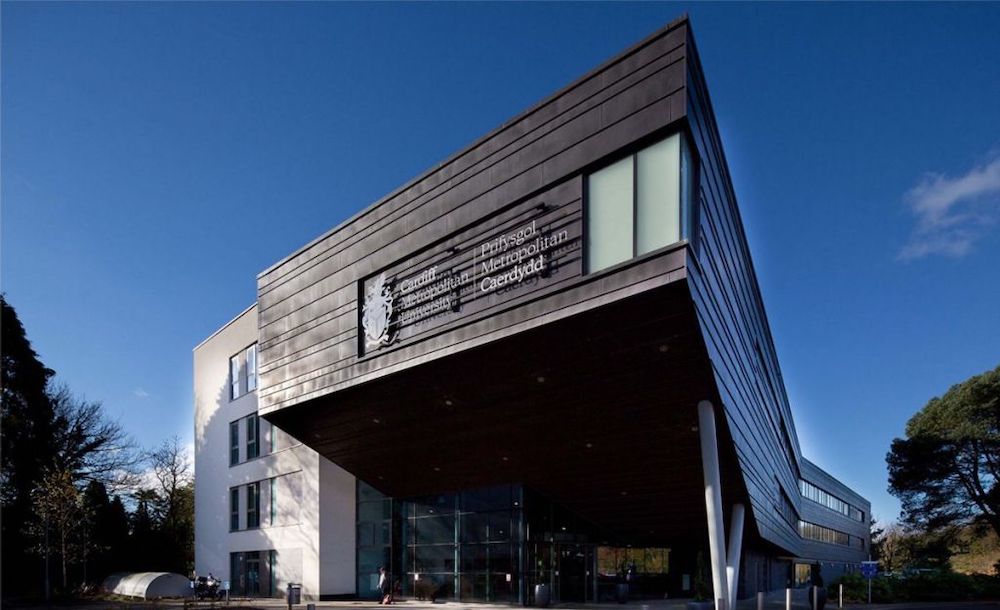(Editor’s note: Dispatches is all about the global mobility of talent. Most of the time we focus on tech. But a professional doctorate could be your ticket to the top of many career fields including consulting.)
I am what one would stereotype as an “over-educated” practitioner, a badge I wear with pride. I’ve work for governmental organizations for the past 20 years. Sabbaticals, certificates and degree programs are tools used to motivate and reward the workforce. It’s a win for any company that can afford to send its people, and a win for the employee.
I completed my fourth masters program in 2018, thinking that it was my final measure. Two years later, mid-assignment in Belgium, my organization introduced an opportunity to pursue a professional doctorate.
Of course I jumped.

While various programs exist across Europe and the United States, in my case NATO selected a cohort to work with Cardiff Metropolitan University in Wales. Programs in the United Kingdom such as this one run about 3,000 pounds per year while U.S. programs are 10-times more per year on average. Professional doctoral students were then paired with advisors in various schools across the University. As an example, my specific change management project focused on institutional planning and links to leadership, thus the university placed me with advisors in its School of Management.
The program – in my case focused on business and management – was not what I expected. At three years in I am on the final leg of the triathlon. I’ve learned much more than I expected, but the journey has not been smooth or relatable based on previous academic endeavors.
The retention rate for my cohort hovers around 10 percent.
One conclusion is that most who entered weren’t prepared for the work or the self-propelling requirement. With those factors in my rear-view mirror and now accounted for in my gears, I am a strong advocate of this pursuit.
There is very little information available discussing the practical benefits of a professional doctorate when an individual is considering it. The programs are not universal, much less mutually understood on both sides of the Atlantic.
The takeaways I’ve gleaned are perhaps more relevant to American expats in that we come from the land of the priciest higher education on Earth.
With that in mind, here’s why I recommend taking the leap if considering one of these programs.
Lessons and benefits:
- Being intellectually stretched is invigorating. I’m solidly in my 40s on a career plateau, mostly by choice. I did not realize how this program could improve my writing or sharpen my thinking until truly challenged by the demands of a British doctorate. I have quality advisors who made me go deeper and deeper in challenging my sources and assumptions, designing effective research, and increasing awareness about my own style of learning, writing and leading.
- Taking a magnifying glass to one’s field as an insider academic opens the door to insights otherwise unreachable. I work in strategy development and implementation for complex, multinational organizations. Personal experience and culture impacts all of us in the field. A professional doctorate focuses learning on better appreciating what lies beneath organizational approaches or individual leadership styles, not just by one’s professional gut or theoretical research but by applying the latter to knowledge that comes with the former. For me this translated to a wider and clearer appreciation of linkages, causes and effects of successes and shortfalls within my own organization. I also analyzed what elements of change management and individual leadership styles worked in pursuit of understanding why. I can leverage this appreciation in every organization I will work for in the future.
- Costs of education in Europe are a small fraction of the cost for similar programs in the United States. My program is approximately 15,000 Euros in total for the (initial, minimal) lectures, (expert) advising, grading and conferring of my degree across a four-year time horizon. I do not live in the same country as the university. I will make three trips in person and everything else is done online.
- The national differences in academic systems, program requirements, educational cultures, and advising provide the added benefit of expanding ones educational experience. While not as accepted as a PhD, a professional doctorate is a legitimate doctorate and may be used for teaching or consulting.
- The pace of the professional doctoral journey is set by the student. Depending on program, this does not impact cost. I have worked full-time throughout it. There were 3-to-6 month periods during this journey in which my day job had me too busy to translate any of my work into academic progress. In effect, I pressed hold or resume when needed. (Of course this is likely a reason as to why retention in my cohort was low.) The student must commit and drive – the university does not set deadlines in bite-sized chunks.
- Last, my kids get to call me doctor. I relish it because they think it’s cool. It also shows them that education is a life-long choice to continually invest in and improve oneself. Plus it is possible to do so while having a career!
Can’t a masters degree, or two, or three, also achieve this? If the question is whether or not it can expand your thinking and challenge you – absolutely, as much as you allow it to do so. But the outcome of my masters programs felt clear at onset, substantively bounded, and almost guaranteed. Complete a series of courses and papers demonstrating awareness of knowledge in the field and get the degree.
Masters degrees increase theoretical knowledge that may be applied at work, but application is not required and does not receive the same level of academic rigor.
Commitment
It’s not all roses. The completion rate alone sends up warning flags. The research process is difficult, especially from afar, and requires boatloads of personal commitment – especially if you have a day job.
There was no spoon-feeding. My advisors reviewed two drafts in each of five major papers. Each first draft produced similar results: “This isn’t ready yet, cut half, add another completely different half (usually blind spots in my own research), and consider the following… (often a list so long that I felt like I was just told to start over).”
The differences between first drafts, final submissions and board presentations were huge – leading to a cycle of frustration followed by pride, along with a lot more work than anticipated. Yet that cycle has been the most impactful academic experience of my career. It is where deep, reflective learning kicked in.
Intertwined with your career goals
So what is the difference and what what does the professional doctorate get you? The program was completely intertwined with immediate professional and personal application. I revisited classics and dug into current theory in my field, research philosophies and derivative methods, then applied this to examine my own organization’s context.
The program then taught me how to organize and apply my personal reflections to improve my performance at work and in academic pursuits. It elevated my thinking, and therefore my leadership potential, to a higher level.
There are many ways to derive results. Examining and measuring the impact of my organization’s approach and my own approach within the doctoral process made me more aware of change management at individual and institutional levels. I can apply these lessons anywhere in just about any field. It’s a win-win for a sponsoring organization and the practitioner.
In short, masters degrees and professional doctorates provide different benefits to individuals and organizations. Information on masters programs is plentiful; some say a masters today is what a bachelors was a few generations ago. Professional doctorate programs are obscure comparatively, and not well understood.
It’s time to give them a spotlight they rightly deserve.

LeAnne Howard
LeAnne Noelani Howard, a Honolulu native, works for NATO Special Operations Headquarters. Prior to joining NATO, she worked for the U.S. Department of Defense for almost two decades with service in the Middle East, Asia, and Europe. A trans-Atlantic academic at heart, LeAnne is currently pursuing a professional doctorate through Cardiff Metropolitan University in multinational strategic planning and is a frequent guest lecturer with NATO and national government institutions. Her kids continue to serve as her French translators.














